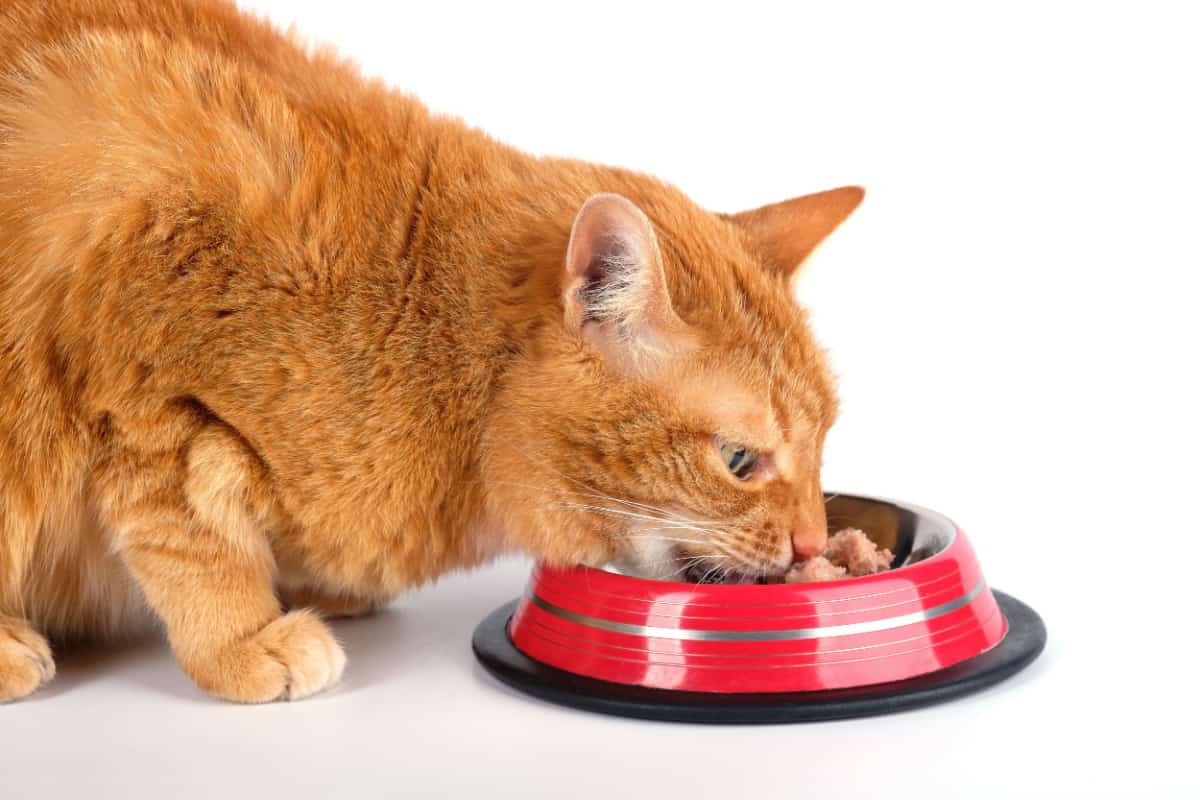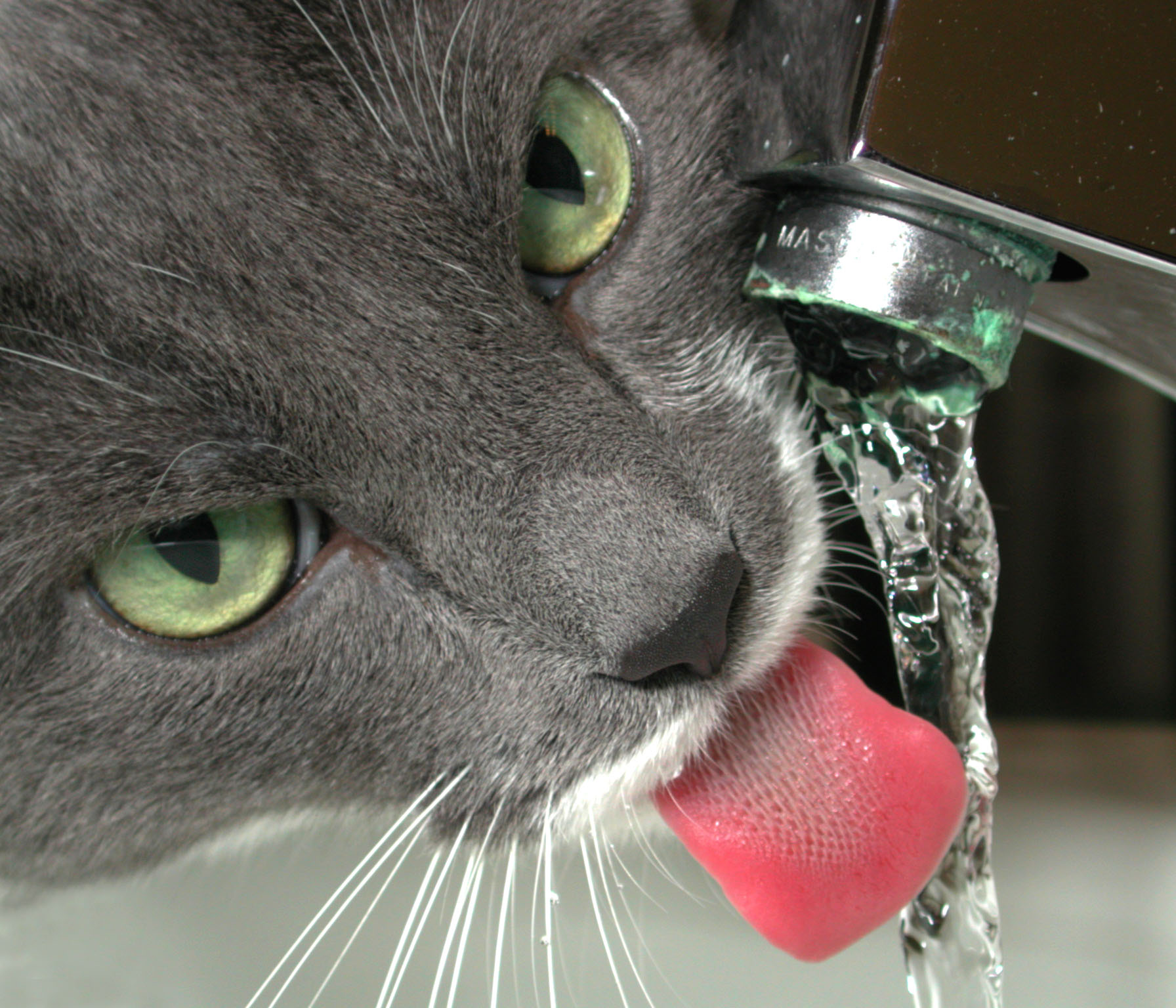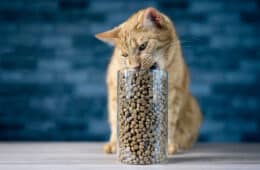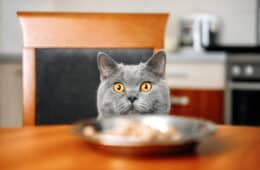Does your cat devour meals like it's a race? You're not alone, as many pet owners face this common challenge. This rapid feeding can lead to various health problems, causing concern for owners like you. So, how can you keep your cat from scarfing down their food?
This guide will explain the reasons why cats might eat too quickly, sharing stories from fellow pet owners and suggesting practical solutions to try. Don't worry, we've got your back in this feline feast frenzy. Ready to get started?

A Race Against Time: The Fast Food Challenge
Does your cat turn every meal into a speed-eating contest? This seemingly adorable trait could invite a host of unwelcome health problems. From vomiting to choking, and other gut-related complications, the list is rather alarming.
For example, forum member Florine shared their experience with a five-month-old kitten who has an insatiable appetite and eats their food incredibly fast. While feeding the kitten the recommended amount of wet food based on their weight, Florine was concerned about their fast eating habits and was looking for ways to slow them down.
Another forum member, amberg, shared their experience with their cat, Amber, who would gorges on wet food and then regurgitate it shortly after.
Don't despair, though. There's a silver lining. We've got an array of helpful strategies you can try to gently nudge your furry companion towards slower, healthier eating habits. Stay tuned as we unfold them.
Feeding Smaller and More Frequent Meals
One way to help address the issue of fast eating is to feed your cat smaller and more frequent meals throughout the day.
This can reduce the risk of digestive problems such as nausea and vomiting.
Reducing Stress During Mealtime
Reducing your cat's stress levels during mealtime can also help slow down their eating habits.
Provide your cat with a calm and quiet environment during mealtime to help reduce their anxiety and prevent them from rushing through their food.

SIGN UP FOR THECATSITE'S EMAIL UPDATES >
Spread Wet Food on a Plate
If your cat prefers wet food, try spreading it onto a dinner plate.
This will force your cat to lick their food, rather than gulp it down. It works best for paté-style foods, and it's a great way to slow down your cat's eating habits.
Consider Special Feeding Bowls or Puzzles
You can also use special feeding bowls or puzzles that are designed to slow down your cat's eating.
These feeders force your cat to eat more slowly or work for their food, which can help prevent them from gobbling down their food too quickly.
Try using an interactive feeder, like the PetSafe SlimCat Interactive Cat Feeder, to make your cat work for their food.
See the PetSafe SlimCat Meal-Dispensing Cat Toy on Amazon
Not only does it slow down their eating, but it also provides mental stimulation and can help reduce anxiety.
Place Food in the Egg Tray
Another option is to use a melamine egg tray or deviled egg serving dish to slow down your cat's eating.
The hollows will force your cat to eat slower as they work to get all the food out. It's a simple yet effective way to slow down their eating habits.
Place an Object in the Food Bowl
Try placing an object, like an upside-down egg cup, in your cat's food bowl. This will make it more difficult for your cat to access the food, causing them to eat more slowly.
Give it a try and see if it works for your cat.

Consulting with Your Veterinarian
If your cat's fast eating habit persists, it's important to consult with your veterinarian. They may recommend a specific diet or prescribe medication to help address the problem.
Your vet may also perform a physical exam to check for any underlying health issues that could be contributing to your cat's eating behavior.
Final Thoughts
Fast eating habits can lead to serious health problems in cats. However, by following these simple tips, you can help slow down your cat's eating habits and reduce the risk of digestive problems.
Remember to feed your cat smaller and more frequent meals, use special feeding bowls or puzzles, reduce stress during mealtime, and consult with your veterinarian if your cat's fast eating habit persists.
With a little bit of patience and care, you can help your feline friend enjoy their meals at a healthier and more comfortable pace.
SIGN UP FOR THECATSITE'S EMAIL UPDATES >
Note: We may get commissions for purchases made through links on this page.




